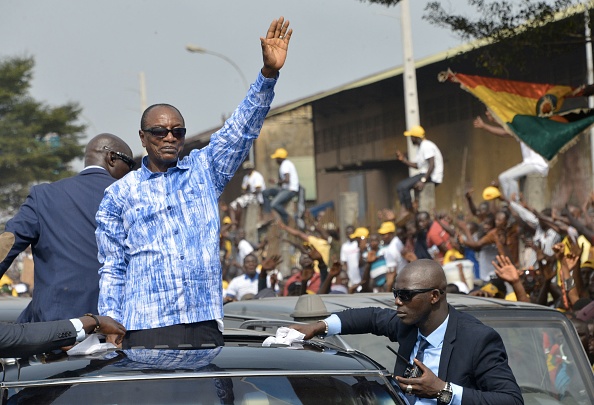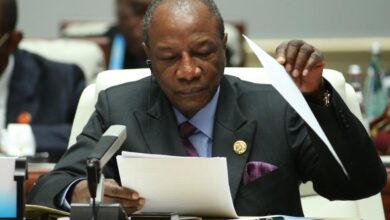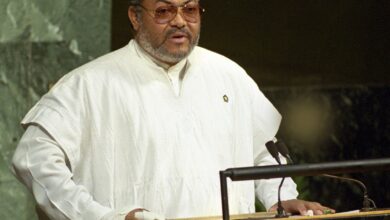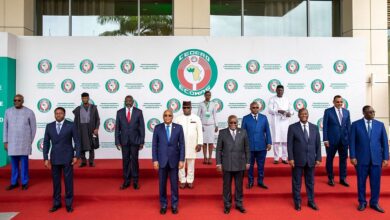Guinea
Guinea: People Vote To Elect Next President As Conde Seeks Controversial Third Term

The people of Guinea voted on Sunday to elect the country’s next president, as incumbent Alpha Conde seeks a controversial third term, reported VOA News.
Around five million voters were eligible to cast votes in Sunday’s presidential election that pits incumbent Alpha Conde against 11 other challengers.
Conde, the presidential candidate of the Rally of the Guinean People party, was the country’s first democratically elected leader since the country’s liberation from France in 1958. He came to power in 2010. He was re-elected in 2015.
Conde is facing opposition leader Cellou Dalein Diallo, who served as prime minister under authoritarian leader Lansana Conte. Both the leaders have accused each other of fueling intercommunal tensions during the campaign.
The incumbent president pushed through a new constitution, claiming that it would modernize the country. The new constitution was overwhelmingly supported by voters in a March 22 referendum that now makes Conde eligible to remain the country’s president for 12 more years.
The referendum was however boycotted by Conde’s political rivals and civil society organizations. It resulted in mass protests throughout Guinea and warnings from international rights groups that Conde may be veering toward authoritarianism.
According to the international rights group Amnesty International, around 50 people lost their lives and over 200 got injured in protests in Guinea since the beginning of this year.
On Saturday, Secretary-General António Guterres urged all political leaders and their supporters to refrain from acts of incitement, inflammatory language, ethnic profiling, and violence.
“The Secretary-General urges political leaders and their parties to resolve any disputes that may arise through legal means,” Guterres said in a statement.
He reiterated the United Nations’ commitment to supporting the country’s efforts to promote national cohesion.
The results are not expected for several days. If none of the candidates receives more than 50% of the vote, a runoff election will take place.





